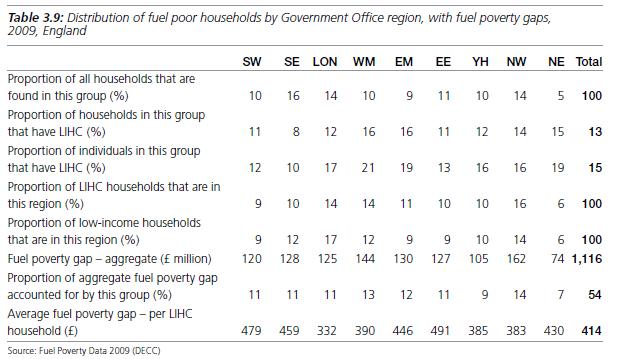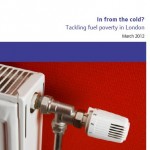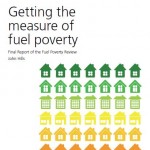Site search:
-
What’s new?
Energy for London Tags
Brent Buildings Camden Carbon Emissions CHP Cities Climate Adaptation Community Heating Community Initiatives Croydon Data DECC Decentralised Energy Distribution ECO Energy Costs Energy Efficiency Enfield FIT Fuel Poverty Funding Green Deal Hackney Haringey Housing Islington Lambeth Library Local Authorities Mayor Newham Ofgem Olympics Photovoltaics Planning RE:FIT RE:NEW Renewable Energy Retrofit Southwark Tower Hamlets Transport Waltham Forest Waste WestminsterEnergy Archives:
- February 2021 (1)
- January 2021 (15)
- December 2020 (15)
- November 2020 (9)
- October 2020 (3)
- August 2020 (5)
- July 2020 (3)
- June 2020 (4)
- April 2020 (10)
- March 2020 (5)
- February 2020 (2)
- January 2020 (3)
- October 2019 (1)
- September 2019 (4)
- August 2019 (2)
- July 2019 (1)
- August 2018 (1)
- November 2016 (8)
- October 2016 (8)
- September 2016 (2)
- August 2016 (8)
- July 2016 (14)
- April 2016 (12)
- March 2016 (16)
- February 2016 (8)
- January 2016 (4)
- December 2015 (1)
- November 2015 (1)
- October 2015 (16)
- September 2015 (3)
- June 2015 (1)
- May 2015 (1)
- April 2015 (1)
- March 2015 (1)
- February 2015 (1)
- January 2015 (1)
- December 2014 (18)
- November 2014 (4)
- August 2014 (8)
- July 2014 (7)
- June 2014 (25)
- May 2014 (8)
- April 2014 (4)
- March 2014 (12)
- February 2014 (7)
- January 2014 (13)
- December 2013 (11)
- November 2013 (15)
- October 2013 (15)
- September 2013 (18)
- August 2013 (5)
- July 2013 (20)
- June 2013 (33)
- May 2013 (8)
- April 2013 (16)
- March 2013 (25)
- February 2013 (14)
- January 2013 (20)
- December 2012 (23)
- November 2012 (23)
- October 2012 (25)
- September 2012 (14)
- July 2012 (12)
- June 2012 (43)
- May 2012 (20)
- April 2012 (8)
- March 2012 (40)
- February 2012 (39)
- January 2012 (40)
- December 2011 (22)
- November 2011 (40)
- October 2011 (33)
- September 2011 (48)
- August 2011 (40)
- July 2011 (58)
- June 2011 (41)
- May 2011 (80)
- April 2011 (38)
- March 2011 (33)
- February 2011 (25)
- January 2011 (24)
- December 2010 (3)
- November 2010 (7)
- October 2010 (6)
- September 2010 (7)
- August 2010 (1)
- July 2010 (2)
- June 2010 (4)
- May 2010 (1)
- March 2010 (3)
- February 2010 (3)
- December 2009 (5)
- November 2009 (2)
- October 2009 (3)
- July 2009 (3)
- June 2009 (1)
- April 2009 (1)
- March 2009 (1)
- February 2009 (1)
- January 2009 (1)
- December 2008 (2)
- October 2008 (1)
- September 2008 (1)
- July 2008 (1)
- March 2008 (2)
- January 2008 (2)
- October 2007 (1)
- September 2007 (3)
- July 2007 (1)
- March 2007 (1)
- February 2007 (3)
- November 2006 (3)
- August 2006 (1)
- February 2006 (1)
- May 2005 (1)
- February 2004 (1)
Tag Archives: Fuel Poverty
Fuel Poverty per Constituency
June 2012: The Energy Bill Revolution website – which campaigns for the Government to direct more of the billions it raises from environmental taxes to be directed to improving the energy efficiency of UK households – includes an excellent resource to identify the number of fuel poor households in your constituency, and, also generates a letter for you to inform your local MP on the EBR campaign. Find out more here.

Put the over-75s on lowest energy tariff, urge Tower Hamlets councillors
April 2012: From the East London Advertiser “Eight-out-of-10 pensioners in London’s deprived East End are paying too much for their gas and electricity, according to Tower Hamlets councillors. Now Labour members on the council are backing a national campaign for companies to put those over 75 on the cheapest tariff—by law.
“Cllr Rachael Saunders, Labour’s Adult Care spokesperson, said: “It’s no surprise that 80 per cent are paying over the odds with 400 tariffs on offer. “This rip-off must end—the big energy companies must make sure those over 75 are on the cheapest deal.” Nearly 8,000 in Tower Hamlets are paying £200 a year more than they need to, according to estimates. Labour is calling on the Government to legislate for energy companies to put the over-75s on the lowest tariff automatically.”
Islington: £3m for warming homes, energising business
March 2012: Islington Council news release issued which sets out how the cuoncil has announced how “it will take another 1,000 households out of fuel poverty before 2014 while stimulating the economy creating local jobs and apprenticeships for plumbers, electricians and roofers.
A report to the Council’s executive on 27 March will seek to approve £3m for a universal boiler scheme and insulation works that will reduce bills and put money back in residents’ pockets.
Islington Council will use the investment to attract the maximum benefit from the government’s Green Deal programme towards helping fuel poor households.
The good news comes on the back of a successful year for the council’s energy efficiency action in which over 300 council homes have received ‘A rated’ boilers, 2,300 residents have been helped with energy advice, and the energy doctor has visited over 700 households.
In addition, 1,600 households have received help through the award-winning SHINE service (Seasonal Health Interventions Network) – Islington Council and NHS Islington’s one-stop referral service including benefits checks, Telecare applications and befriending services for the elderly.
Signing off the report Kevin O’Leary, Corporate Director of Islington Council’s Environment Department said: “Taking thousands of poorer households out of fuel poverty is the key to making Islington a fairer place.
“In addition, new jobs and apprenticeships for hundreds in the construction trades are much needed by our young people who have been badly hit by recession.”
In addition to the £3m for boiler replacement, local power schemes in Bunhill and Crouch Hill will be completed in time for winter 2013, bringing cleaner, greener and cheaper energy to 750 homes and businesses in the south and north of the borough.”
Energy and Climate Questions to the Mayor
March 2012: This month the Mayor has been asked questions in relation to:
Climate change data for the Mayor’s energy strategy; London & Quadrant homes RE:NEW delivery; air quality around new energy from waste schemes in London (1, 2 and 3); borough roll out of RE:NEW; an update on RE:NEW; asking the Mayor whether he would support the Energy Revolution Campaign; the use of heat pumps on Crossrail actions the Mayor will take to achieve the targetst in his Climate change strategy; progress of the Mayor’s Low Carbon Employment and Skills Programme; the amount of funding levered in by RE:NEW from the CERT programme; Mayoral action on the Green Deal; an update on London’s Environment Strategy; LWaRB work on waste infrastructure; Waste infrastructure investment; London Waste & Recycling Board; RE:NEW and Fuel Poverty; RE:NEW funding from Decent Homes (1); and RE:NEW funding from Decent Homes (2).
Previous questions to the Mayor can be found here.
Hills Fuel Data for London
March 2012: The Hills Fuel Poverty report does provide a regional breakdown of data – as the interim did also – and highlights that:
“Table3.9 shows that London households are only slightly less likely to be fuel poor than others, although they do appear to be less deeply in fuel poverty on average, with a considerably lower average fuel poverty gap than other regions. There is a relatively even split between the broad regions in terms ofthe fuel poverty gap, so that region by itself would not be an effective targeting tool.”
 Further details on the report with links provided on an earlier post.
Further details on the report with links provided on an earlier post.
Number of households affected by fuel poverty in London is continuing to rise
 13 March 2012: The London Assembly Health and Public Services Committee have published their conclusions from a lengthy study looking at the incidence and causes of fuel poverty in the capital. The report warns that “despite efforts by the government, the Mayor and a range of targeted initiatives and incentives, the number of households affected by fuel poverty in London is continuing to rise.”
13 March 2012: The London Assembly Health and Public Services Committee have published their conclusions from a lengthy study looking at the incidence and causes of fuel poverty in the capital. The report warns that “despite efforts by the government, the Mayor and a range of targeted initiatives and incentives, the number of households affected by fuel poverty in London is continuing to rise.”
The report ‘In from the cold’ makes a series of recommendations that the Committee state could help improve the situation for the “nearly one in five London households who struggle to heat their homes and pay their energy bills.”
The Committee state that unless action is taken to tackle the problem, long-term energy price rises will continue to push more people into fuel poverty: the Greater London Authority’s (GLA) own projections show a worst case scenario that almost a quarter of households will be in fuel poverty by next year.
View the press announcement of the report here. The report can be viewed here and a new fuel poverty mapping tool using open public data to help delivery organisations identify areas in London most likely to contain households at risk of fuel poverty and offer them targeted support can be downloaded from the London datastore here. Written evidence to the committee can be downloaded here.
New definition will push up the incidence of fuel poverty in London
 March 2012: The final report from Prof. John Hills has just been published, which provides a series of recommendations to Government in relation to amending the current definition of fuel poverty. The detail behind this study has been covered in some previous posts (see here) but a key output is to recommend that “Government should measure incomes for fuel poverty purposes after housing costs and adjusted for household size and composition.” As a result, the report’s revised indicator (to replace the Government’s current fuel poverty definition) – the LIHC (Low Income High Costs) – “finds that London households account for a greater proportion of fuel poor households than the official indicator.”
March 2012: The final report from Prof. John Hills has just been published, which provides a series of recommendations to Government in relation to amending the current definition of fuel poverty. The detail behind this study has been covered in some previous posts (see here) but a key output is to recommend that “Government should measure incomes for fuel poverty purposes after housing costs and adjusted for household size and composition.” As a result, the report’s revised indicator (to replace the Government’s current fuel poverty definition) – the LIHC (Low Income High Costs) – “finds that London households account for a greater proportion of fuel poor households than the official indicator.”
The report is vitally important to the debate on how we define future policies to tackle fuel poverty, and will have impacts on framing of the forthcoming Energy Company Obligation (ECO) and the Green Deal.
Links to the report and supplementary material follow below:
- Final report of the Fuel Poverty Review by John Hills – Getting the measure of fuel poverty and also the
- Hills Review Final Report Press Notice
- DECC’s press notice
- Getting the measure of fuel poverty: summary and recommendations
- Data used to produce charts for the final report of the Fuel Poverty Review (Excel file)
- Professor Hills’ presentation on the final report: Getting the measure of fuel poverty (Powerpoint – 5MB)
Hounslow Warm Homes Healthy People Conference
March 2012: The Hounslow Warm Homes, Healthy People conference will look to:
- Find out about the causes and effects of cold homes and poor quality housing. Health issues related to cold homes cost the NHS in London £118m each year, and nearly £900m nationwide.
- Learn more about services available across the Borough to help and support residents to stay warm and well at home
- Share views and ideas on how services in Hounslow should best be coordinated to ensure the best outcomes for residents
Hounslow Council is particularly keen to consult with stakeholders at this early stage as it develops its thinking about how the Council, the health sector, voluntary organisations and community groups can best work together to help people keep warm and healthy at home.
The event will take place on Friday 23rd March, from 9.30am – 3.30pm, at Hounslow Civic Centre. Register now for your free place here.
Energy and Climate Questions to the Mayor
February 2012: This month the Mayor has been asked questions in relation to:
money saved through RE:FIT; grants available to tackle Fuel Poverty; the budget available to the RE:NEW energy efficiency programme; Carbon savings of ten easy measures from RE:NEW; Borough roll-out of home energy efficiency scheme RE:NEW; an Update on home energy efficiency scheme RE:NEW; the Mayor’s work with energy companies to eradicate Fuel Poverty; the number of homes in Greenwich under the RE:NEW programme; the number of homes in Lewisham under the RE:NEW programme; the number of homes under the RE:NEW programme receiving benefits; the age profiles of householders being treated under the RE:NEW programme; fuel poor homes treated under the RE:NEW programme; the number of public sector buildings treated under RE:FIT; the London 2012 Olympics – carbon reduction target; progress on Decentralised Energy; monitoring of renewable energy; the quantity of London’s Renewable Energy; RE:NEW cost and carbon savings; progress against London’s 2020 CO2 reduction target; and Climate change budgets.
Previous questions to the Mayor can be found here.
Posted in News, Uncategorized
Tagged Fuel Poverty, Greenwich, Lewisham, Olympics, RE:FIT, RE:NEW, Renewable Energy
Leave a comment
CERT delivery in London
22 February 2012: Parliamentary question from Tessa Jowell, MP for Dulwich and West Norwood about the delivery of CERT in London.
Tessa Jowell: To ask the Secretary of State for Energy and Climate Change how much expenditure under the (a) Carbon Emissions Reduction Target and (b) Community Energy Saving Programme has been incurred in respect of properties in (i) London and (ii) the UK. [95626]
Gregory Barker: Best estimates of energy companies total costs in meeting their GB-wide Carbon Emissions Reduction Target (CERT) and Community Energy Saving Programme (CESP) obligations were detailed in the respective impact assessments at the outset of the schemes. Regionally disaggregated cost estimates have not been made. However, in terms of delivery activity, latest figures published by the Energy Saving Trust show that around 2.6 million homes had received insulation measures by March 2011, including almost 132,000 properties in London.
At present, the Government do not have powers to require the obligated energy companies to disclose their CERT and CESP compliance costs. However, we are taking steps to ensure information is available about the cost of delivery under the forthcoming energy company obligation, which is due to replace the existing schemes at the end of 2012.
The latest EST figures for CERT are posted here (they are anticipated to be updated by the EST in early March). The data above once again highlights the low delivery of CERT and CESP in London, with London only achieving a level of around five per cent of all homes treated in the UK
Posted in Energy Efficiency, News, Uncategorized
Tagged CERT, CESP, Energy Efficiency, Fuel Poverty
Leave a comment
Households treated under Warm Front in London Constituencies
February 2012: DECC have provided a spreadsheet showing the number of households assisted in each parliamentary constituency under the Government’s Warm Front scheme, for the years 2005/06 to 2011/12. The full list for English constituencies can be downloaded here. The spreadsheet filtered for London data can be downloaded here.

